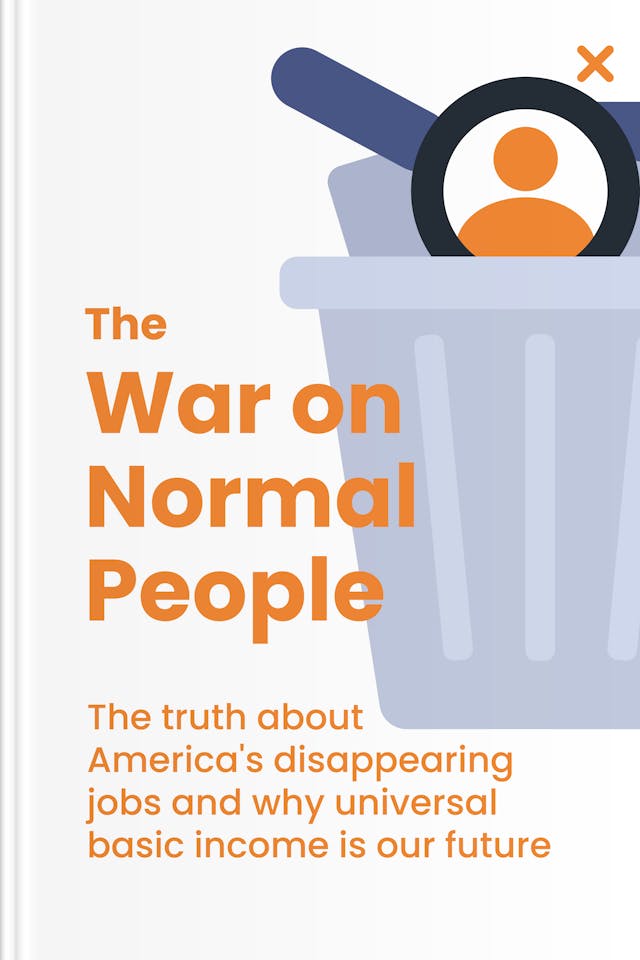You’ll learn
- Why AI is a game-changer for work
- How families are hit hardest by job loss
- The surprising truth about work's fulfillment
- The key to harmonious tech-human living
Protect the world’s peace. Donate to support Ukraine

first KEY POINT
We are in desperate times and very few people recognize it. If you have a college degree and earn upwards of $50K every year, then chances are you won't be able to relate with how the workforce is suffering. Did you know that the average American doesn't have a college degree and makes an average of $15 per hour? Most of these people are either working in transportation, food service, as office clerks, or as part of retail staff.Thousands of them have been laid off over the past two decades and the years that are coming will see more layoffs.It's pretty much like what happened with the industrial revolution that so many people were displaced from their jobs. America saw some level of quick recovery because some workers were able to adapt, retrain and get hired again. But sadly, not every laid off worker was able to bounce back. Let's move away from workers and compare how jet age companies survive compared to earlier companies.Research has shown that since the 1980s, when manufacturing industries embraced technology — which led to the displacement of many workers — there has been a steady decrease in the number of workers that companies in this industry hire. Matter of fact, it's no longer the manufacturing industry alone; all companies have now learned to minimize labor cost to make maximum profit.
Take Airbnb and Hilton for example. Both companies are giant operators in the real estate sector, but one chose to use technology to find a way to make money while having the lowest possible number of workers. In 2016, Hilton had 169,000 employees, while Airbnb had just 3,100 in 2017. That's the reality of the world we now live in. Companies are cutting costs as much as they can by utilizing technology and hiring fewer human workers. This means two things: many workers have lost — and would continue losing — their jobs. It also means fewer opportunities for graduates of certain majors. In short, technology is shrinking the workforce. When you realize tech is here to stay, you will begin to see the weight of the matter.What will happen in the future? Which jobs are safe? What industries should we run to for cover, or how else do we secure our future? All these and more will be answered in subsequent chapters.
second KEY POINT
The argument for work is almost always a philosophical one. When you ask people why they work, you will get responses ranging from survival to purpose. When we're young and ready to face life, we jump into the workforce first for the money. Very few young people admit to working because they love to. But as time goes on, we begin to desire greater things from the work we do. Things like comfort, freedom, satisfaction and a sense of purpose are all things we would eventually desire from the jobs we commit our lives to doing.Some professions easily provide these. It's easy to feel like you're contributing to humanity when you're a clergy, a doctor, an innovator or a lawyer, but it's hard to see the real impact of your work when you work as a janitor or an office clerk. This is not to downplay certain categories of jobs, but let's face the fact: fulfillment and meaning are absent in most average jobs.

Continue reading with Headway app
Continue readingfirst KEY POINT
second KEY POINT
third KEY POINT
fourth KEY POINT
fifth KEY POINT